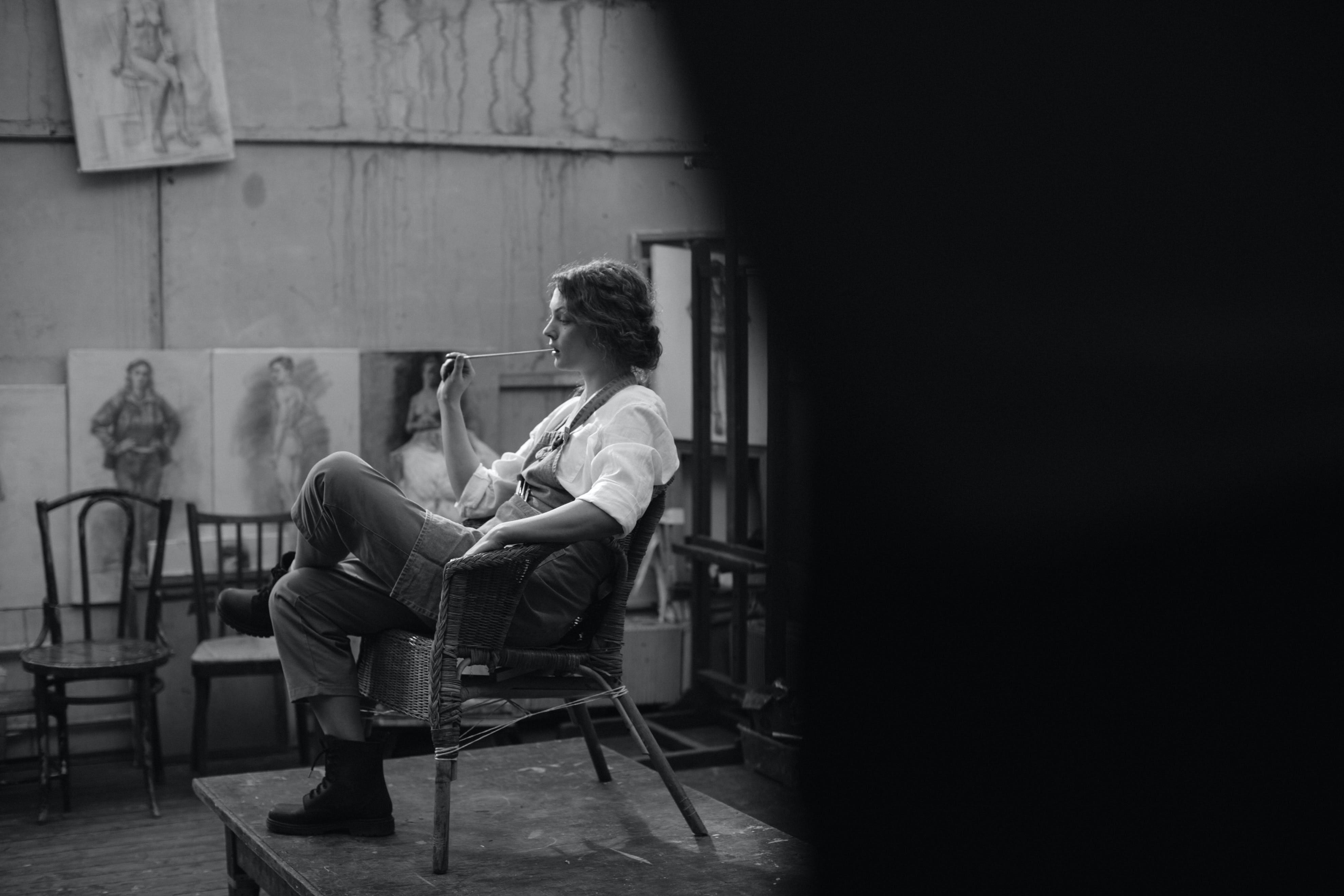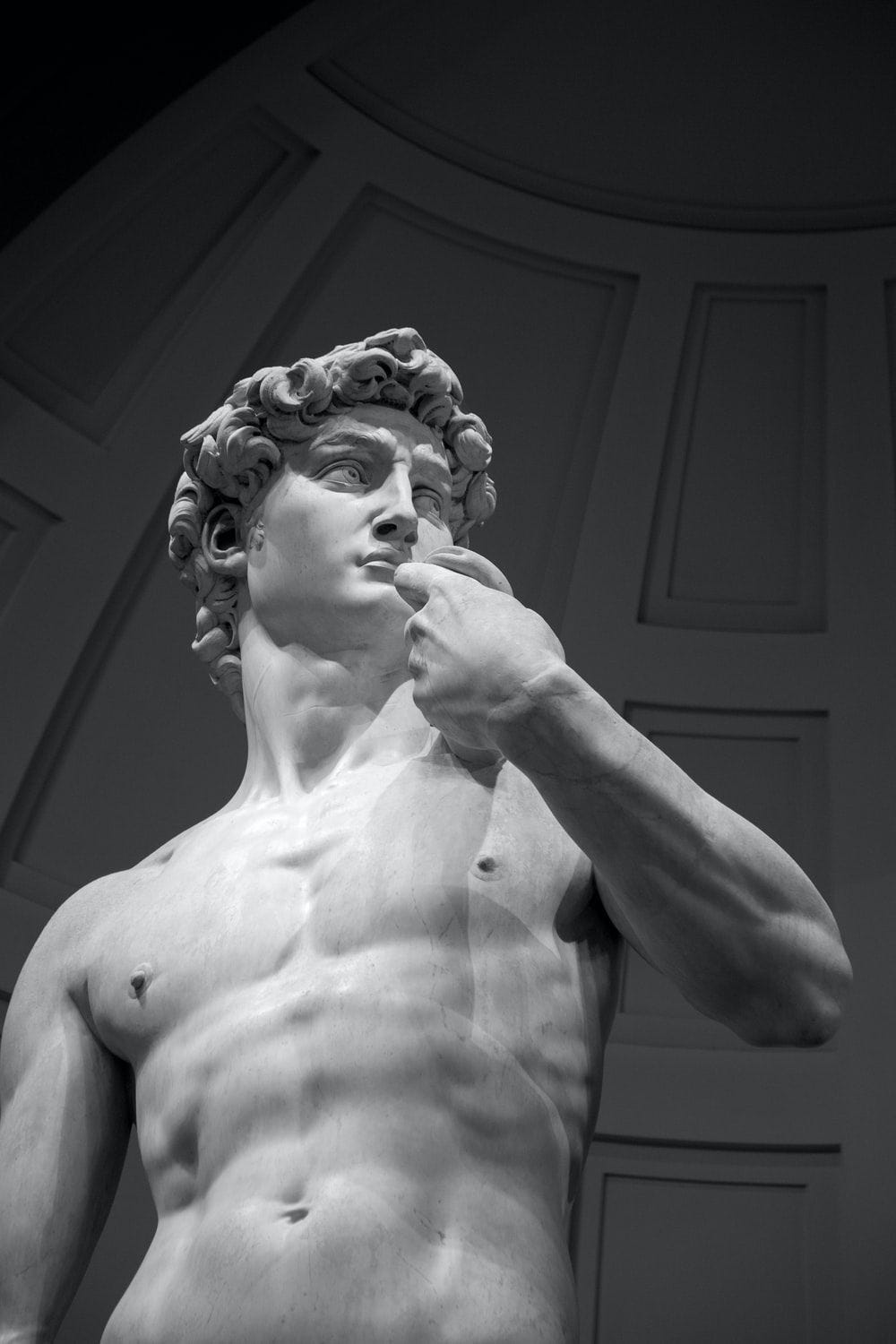When artists must prostitute themselves, society breaks down
The tragedy that is the poverty of mass-produced content.
Modern art, most people will concede, cannot compare to the works of the old masters. It’s not that contemporary artists, writers, poets, musicians, or even philosophers are inherently worse than the ones that preceded them so many decades and centuries ago, it’s just that they do not enjoy the same amount of trust, time, and resources.
We as a society do not place such importance on the aesthetics and deeper meanings of our lives anymore. Short-term thinking and gratification have, to a large degree, replaced the inherent desire to improve our surroundings and leave a better world for our descendants. Modern men and women are mostly confined to the narrow spaces of their homes now, restricted to the mind-boggling speed of the digital world that turns everything into a commodity.
Yet without artists and great thinkers, we are nothing.
It’s curious that in our times of unprecedented (Western) wealth and material comfort, results of decades and centuries of technological progress and productivity gains, creatives have such a hard time ‘earning a living.’ Shouldn’t such an affluent society be able to support ever more artists, writers, and other artisans?
Michelangelo’s David took three years (1501-1504) to complete. Three years of hard, precise work and focus. Can you imagine anyone today toiling for such a stretch of time to complete a single piece of… ‘content’? Can you imagine anyone financing this? Anyone having that degree of trust and patience, foresight?
It took him four more years (1508-1512) to complete the fresco for the Sistine Chapel ceiling. Years of singular obsessive focus to produce a piece of work that has and will further endure the centuries and astonish generations.
Many cathedrals, monuments, and other grand buildings took decades or even centuries to complete, often vastly transcending the lifetimes of those who planned and began construction. Disregarding for a moment the slave labor necessary to complete such shrines to eternity, can you imagine working on something like the pyramids? Something that will stand long after your children’s children are gone?
There is no such long-term thinking anymore. Society, seemingly, has given up on the future.
We do not value great minds anymore because, to a large degree, they just do not exist. We have substituted them with fake geniuses such as billionaires and entrepreneurs. They are an insult to the word ‘genius’ itself. At some point, we have changed the definition of greatness to mean the parasitic, unbounded accumulation of wealth at the cost of everything else. Great thinkers, apparently, are those who can best navigate an entirely sick, profit-oriented, consumerist society.
And what a poor substitute that is.
The modern artist or creative mind that does not, nay cannot, be confined to the corporate office space has a hard time scraping by. How many stories have we heard of the struggling painter or musician or graphic designer who works so much more than any marketing or HR Excel-sheet filler yet earns a fraction of those bullshit occupations and must spend the remainder of his or her days waiting tables or working in grocery stores?
What earns money is not what is truly valuable to a society. How else can one explain the fact that investment bankers earn hundreds, thousands of times more than any nurse or teacher in this world? Why is raising children and running a household not compensated? Are those activities not valuable?
The tragedy that always gets me are those who are inspired, inquisitive, intense, creative, and eager yet must relent and choose ‘reasonable’ career paths and give up their passions. The calamity that is the corporate lawyer who has always wanted to make music. The secretary, the manager who loves hiking and spending time in the outdoors yet never can follow this desire for they are too tired and busy. Not to speak of the millions and billions who suffer under artificial, intentional poverty and will never have the opportunity to even discover who and what they are.
Modern art and music are churned out and mass-produced. Pop songs made by algorithms, market research, and AI. ‘Paintings’ with nothing of worth on them, only aiming to enrage or arouse controversy, produced in minutes, or hours at most, and not months and years. Self-help books that say nothing and only remind us of the trees that had to die for these atrocities. Grey, sad, depressing buildings made from templates, and cities that are only livable if you are a car:
The analysis of how and why we arrived at such dire circumstances is a long and complex one, involving the rise of capitalism and consumerism but also circumstances and developments much, much greater writers than me have trouble articulating.
‘For as soon as the distribution of labour comes into being, each man has a particular, exclusive sphere of activity, which is forced upon him and from which he cannot escape. He is a hunter, a fisherman, a herdsman, or a critical critic, and must remain so if he does not want to lose his means of livelihood; while in communist society, where nobody has one exclusive sphere of activity but each can become accomplished in any branch he wishes, society regulates the general production and thus makes it possible for me to do one thing today and another tomorrow, to hunt in the morning, fish in the afternoon, rear cattle in the evening, criticise after dinner, just as I have a mind, without ever becoming hunter, fisherman, herdsman or critic.’
— Karl Marx
Yet I know that after centuries of supposed progress and development, we should be in a better place, and no one should be forced to check their emails every five minutes and attend useless meetings. I, too, would much rather concentrate on deep analysis and philosophy than having to churn out, to a degree, essays such as this one to keep engagement high, satisfy algorithms, and, in the final analysis, make more money. I would also much rather spend more time on writing and thinking than having to wait tables to pay my rent. I would also much rather work in nature, with my bare hands, making a physically hard yet morally light living, as Henry David Thoreau did, and think on the living world instead of earning much money yet enjoying little life. But, alas, I cannot afford to own land and do not want to end up in prison.
Such is the fate of those of us whose brains happen to not be entirely suitable to the 9 to 5 lifestyle. Yet not only creatives suffer when society values only the mass-producable. We all suffer. Our imaginations turn narrow and constricted, as evidenced by most people’s utter inability to imagine anything before or after the status quo.
Most governments still monetarily support museums and galleries, true, but it feels more like a relict from past times, a cumbersome obligation, and, anyway, the money spent on this is laughable in comparison and goes not to the masses of potential artisans but to an elitist few who had the right connections or upbringing. Also, large museums that serve as national symbols and objects of prestige.
A true support of the creative, the inquisitive, the deeper would not concern itself with such vain endeavors but, instead, aim to inspire and support the common man and woman, for there is creativity in most if not all of us before it gets systematically stripped away by the bullshit job.
Now, supporting common artists, writers, philosophers, and musicians is relegated to either luck (meaning being discovered on social media after you have posted two thousand of your artworks on Instagram) or the support of fellow working-class people, struggling themselves, who happen to like what you write, for example here on Substack.
The alternative is to, almost literally, prostitute oneself. One knows and reads about those artists and writers that turn to erotica, furry porn, or taboo content to make ends meet. It can be lucrative, yes, but it’s also a sign of our society’s poverty.
Anyways, thank you for all your support. In these circumstances particularly it means more than you can imagine. I wish we could all be artists. Perhaps after revolution, post-scarcity, and automation. But, also, perhaps not.
All my content will always be freely available for at least a month (before it disappears in the vast paid subscriber archive). Thank you, if you deem my work valuable enough to contribute to it. You can become a paid subscriber here on Substack or over on Patreon. If monthly contributions are not your thing (I understand), you can also leave me a tip or some coffee money over on PayPal.
Try to support other small artists, writers, and musicians as well! Trust me, they are all struggling.









I think the biggest problem for me as a musician is finding the motivation after a long work day. You’re absolutely drained when you come home, so the idea of picking up the banjo or guitar just seems like a step too far, even though I know it will make me happy!
You've made excellent points here. Most of your analysis is spot on. However, living as I do in a marginal place (eastern Kentucky), where average incomes are lower than the nation, and costs are lower as well, where traditional jobs are few, I find that I actually personally know more real artists: painters, writers, and musicians than ever before in my life. They are all part of the gig economy, so they are not economically secure, but then neither are their neighbors and family members who work for Walmart, or teach school, or are small town business people. They often depend at least part of the time on grant money (either private or government), they may also take part-time jobs that are more traditional, or they have spouses that have some employment.
There's a lot of support from our communities, communities that aren't well off themselves. Local communities come up with some bucks for a mural here and a mural there, for my painter friend Lacy Hale. People like me pay $30 for prints of her paintings that we love, because we can't afford the paintings themselves. Writers like my friend Melissa Helton (a poet), spend a few years teaching at a community college while getting chapbooks published, then find their dream job coordinating writers conferences for a tiny Appalachian non-profit. The same non-profit provides regional writers with the opportunities to teach small groups of folks (either in person or on-line) the craft of writing, where retired college professors like myself, can pay $250 for a number of intensive hours of one-on-one with award winning, published authors and express our creativity. Versatile artists/musicians like John Haywood do tattoos part-time, teach banjo at world reknown music camps, and play in small bands in local anre regional venues, like my local community center in an aging former elementary school, where admittance is free, and the hat is passed for donations for the band, and former addicts bake artisan pizzas, ancient grain breads, and all kinds of sweet goodies that local folks want. There's lots of artist collaborations like between painter Jeff Chapman-Crane and musician/poet/Appalachian dance instructor Carla Gover who are turning one of Carla's beautiful autobiographical songs Red Bird River into a gloriously illustrated children's book.
I'm not trying to compare my friends to Michaelangelo. But they are living fully creative lives, in part because they support a deep, old regional culture and are supported by that culture. They preserve and advance traditional music and stories, tell stories that are deeply resonant with local peoples and stand up for a culture that has long been marginalized by this country.
For the very same reason, I suspect there are lively artistic communities among racially and ethnically marginalized groups. Groups whose music rarely if ever gets a Grammy. And I think that is part of it, what you said about the commercialization and commodification of art, is very true. So the only places that real art and artists flourish is among those groups sufficiently narrow and marginalized so as to not be profitable targets of commercialization.